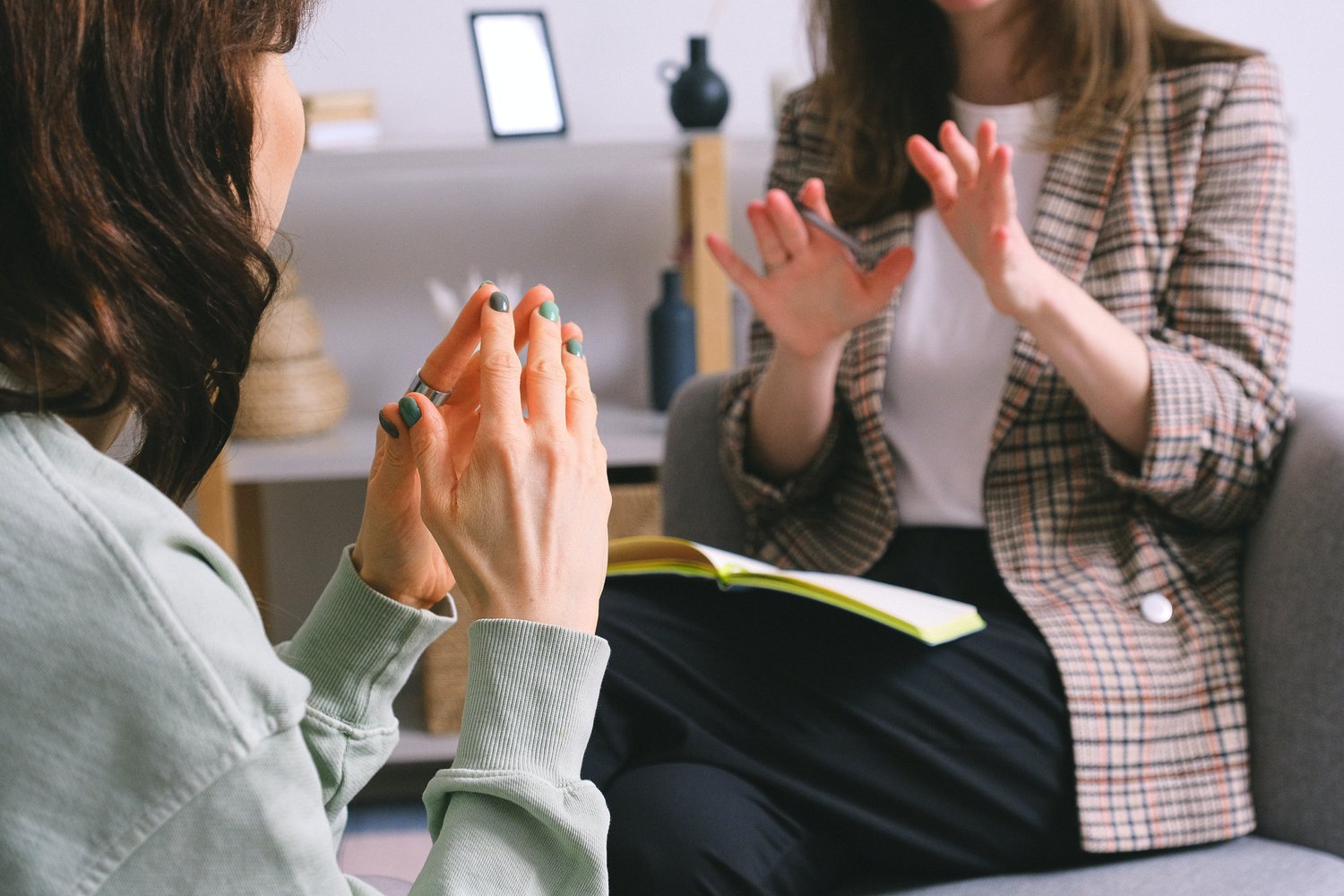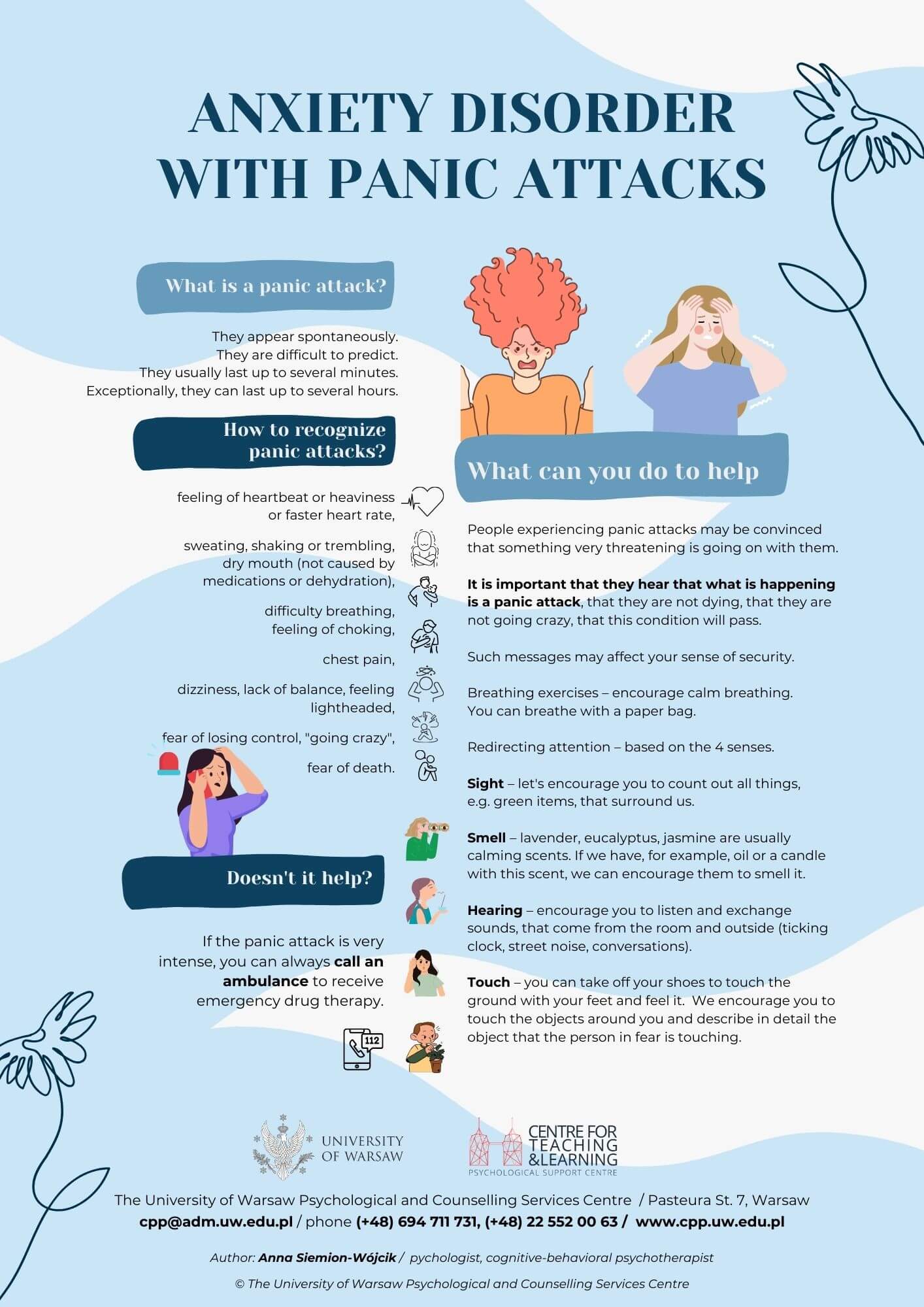Checking Out Various Techniques in Coaching for Anxiety Condition for Long Lasting Adjustment
When dealing with stress and anxiety problems, it's necessary to discover a variety of counseling methods. Each approach supplies one-of-a-kind understandings and devices to assist you handle your signs successfully. You may discover that combining techniques can yield the most effective results. However, comprehending the subtleties of these techniques is crucial to promoting long lasting change. What happens if the ideal combination could release a brand-new degree of emotional well-being for you?
Recognizing Anxiousness Conditions: A Short Summary
Anxiety problems, which impact countless people worldwide, can greatly influence every day life. You might experience frustrating feelings of fear or stress that seem uncontrollable. These feelings can result in physical signs and symptoms like a racing heart, sweating, or perhaps wooziness. Common sorts of anxiousness disorders consist of generalized anxiousness disorder, panic attack, and social stress and anxiety problem. Each has special signs, yet they all share a tendency to interrupt your routine and relationships.Understanding the origin causes of your stress and anxiety is vital. It may stem from genes, brain chemistry, or life experiences. Acknowledging your triggers can aid you manage your feedbacks much better. It is necessary to bear in mind that you're not alone in this battle. Many individuals encounter similar difficulties, and looking for help is a strong action toward feeling much better. By learning regarding stress and anxiety problems, you're already on the course to understanding and managing your problem better.
Cognitive-Behavioral Treatment: Challenging Adverse Thought Patterns
In Cognitive-Behavioral Therapy, you'll begin by determining the negative idea triggers that add to your anxiousness. You'll function on changing them with even more favorable choices when you acknowledge these thoughts. Together, you'll develop efficient coping approaches to help manage your anxiety in everyday circumstances.
Determining Unfavorable Idea Triggers

When you run into minutes of distress, recognizing the particular triggers behind your adverse ideas can be essential in taking care of anxiety. Start by taking notice of circumstances that prompt feelings of worry or worry. Is it a crowded room, a future due date, or a conversation with specific people? Write down these circumstances in a journal. This will certainly help you recognize patterns in your reasoning. Also, notice physical sensations that accompany your unfavorable ideas, like an auto racing heart or rigidity in your upper body. By identifying these triggers, you obtain understanding right into what's sustaining your anxiousness. Understanding these connections is the initial step in challenging those thoughts and inevitably gaining back control over your emotional feedbacks.
Changing Thoughts With Positives
Testing adverse thought patterns is an important action in transforming your way of thinking and decreasing anxiousness. You might typically locate yourself trapped in cycles of self-doubt or disastrous thinking. As opposed to letting these ideas determine your sensations, practice replacing them with favorable affirmations or practical alternatives. When you think, "I can't manage this," move it to, "I can manage challenges one action at a time." This basic change can significantly impact your mood. Consistently recognizing and countering these unfavorable thoughts helps create a healthier interior dialogue. Keep in mind, it takes time and initiative, yet constantly exercising this method can bring about lasting adjustment, encouraging you to encounter anxiousness with restored self-confidence and durability.
Building Coping Methods With Each Other
Changing unfavorable ideas is just the start of managing stress and anxiety properly. To create enduring adjustment, you need to construct coping strategies that equip you. Cognitive-Behavioral Treatment (CBT) aids you determine and challenge those purposeless idea patterns. Together, you and your counselor can discover just how these ideas influence your feelings and behaviors.Start by establishing functional methods, like journaling or mindfulness workouts, that allow you to challenge stress and anxiety head-on. When you face your anxieties progressively, you'll find out to respond in different ways.

Mindfulness and Acceptance-Based Approaches: Cultivating Present-Moment Understanding
As you browse the complexities of anxiety, incorporating mindfulness and acceptance-based techniques can significantly improve your capability to cultivate present-moment recognition. By concentrating on the right here and now, you'll locate that you can observe your thoughts and feelings without judgment (Counseling services for anxiety). This practice aids you acknowledge your anxiousness without feeling overwhelmed by it.Engaging in mindfulness workouts, such as deep breathing, body scans, or led meditations, enables you to ground yourself in your existing experience. Acceptance-based approaches motivate you to welcome your feelings rather than deal with versus them. When you accept your feelings, they shed their power over you.Incorporating these practices right into your day-to-day routine can transform exactly how you react to stress and anxiety. You'll create resilience and find out to browse demanding circumstances with better ease. Inevitably, cultivating present-moment awareness lays the foundation for lasting modification, encouraging you to lead an extra meeting life
Exposure Therapy: Challenging Fears Progressively
Exposure treatment assists you face your fears in a gradual way, making it much less frustrating. You'll find out strategies to face anxiety-provoking circumstances detailed, while additionally constructing coping methods to handle your reactions. This method encourages you to take control and lower stress and anxiety with time.
Progressive Direct Exposure Strategies

When facing anxiety, progressively facing your worries can be a powerful way to gain back control. This strategy, referred to as progressive exposure, involves slowly exposing on your own to the scenarios or items that activate your anxiety. Start with much less daunting situations and progressively function your way as much as even more difficult ones. For instance, if you hesitate of public speaking, you could begin by speaking in front of a mirror, then advance to sharing ideas with a close friend, and ultimately attend to a small group. Each action aids desensitize you to the fear, developing your confidence with time. Keep in mind, it's necessary to speed yourself and celebrate tiny success as you move through this process, enhancing your ability to take care of anxiousness properly.
Building Coping Techniques
Building efficient coping techniques is important for taking care of anxiety, particularly as you face your anxieties progressively - Counseling services for anxiety. One effective approach is Read Full Article direct exposure therapy, where you begin by encountering your worries in a regulated manner. Start with less daunting situations and gradually function your means up to even more challenging scenarios. This gradual exposure helps desensitize you to stress and anxiety sets off, making them less overwhelming.Incorporate leisure strategies, such as deep breathing or mindfulness, to relax your mind throughout exposure. Track your development, celebrating small triumphes along the means to enhance your self-confidence. Keep in mind, it's alright to take your time; the objective isn't perfection yet constant enhancement. By developing these techniques, you'll encourage yourself to navigate anxiety and welcome life extra completely
Psychodynamic Therapy: Uncovering Origin of Anxiety
Psychodynamic treatment checks out the unconscious mind, revealing the origin of your anxiety. By analyzing your ideas, feelings, and previous experiences, this strategy assists you discover underlying conflicts and unsolved concerns that may contribute to your present stress and anxiety. You'll function with a therapist to investigate childhood experiences, partnerships, and emotional patterns that form your feedbacks today.As you obtain understanding into these much deeper layers of your subconscious, you'll start to recognize just how previous events affect your existing habits. This understanding can lead to catharsis, permitting you to refine feelings you may have suppressed.Through the restorative relationship, you can also identify protection devices that may have established in time, providing a clearer path to transform. Eventually, psychodynamic therapy furnishes you with the tools to address your anxiety at its core, promoting enduring makeover in your psychological well-being.
Holistic and integrative Strategies: Integrating Methods for Greater Effectiveness
Incorporating various restorative strategies can enhance your trip toward managing anxiety more efficiently. By incorporating components from cognitive-behavioral therapy, mindfulness methods, and all natural approaches, you can create a tailored approach that addresses your unique needs. For example, you may make use of cognitive-behavioral strategies to test adverse thought patterns while incorporating mindfulness exercises to ground yourself in the existing moment.Additionally, discovering holistic methods such as yoga or meditation can advertise leisure and decrease anxiousness symptoms. This blend permits you to create greater self-awareness and resilience.Experimenting with these diverse approaches can help you uncover what reverberates most with you. Remember, it has to do with finding a synergy that works, instead than adhering to a solitary approach. This integrative technique not just uses immediate relief yet likewise fosters long-term abilities for handling stress and anxiety, empowering you to redeem control over your life.
The Duty of Assistance Systems: Structure Durability Through Connection
While it could seem that managing anxiety is a singular trip, having a solid assistance system can play an essential role in your resilience. Surrounding on your own with compassionate good friends, family, or support system develops a risk-free space where you can honestly share your feelings and experiences. When you get in touch with others, you advise yourself that you're not the only one in this struggle.These relationships use inspiration and can supply functional coping strategies that have actually functioned for others. It's additionally a chance to obtain point of view; pals can help you see situations in different ways, lowering sensations of isolation.Moreover, emotional assistance fosters a feeling of belonging, which can considerably reduce stress and anxiety signs. By leaning on your support group, you can construct durability and tackle obstacles better. Bear in mind, connecting for aid signifies strength, and it can make all the difference in have a peek at this website your journey towards taking care of anxiety.
Frequently Asked Questions
What Are the Typical Signs And Symptoms of Anxiousness Disorders?
You might experience restlessness, tiredness, trouble focusing, irritability, muscle tension, and sleep disturbances. Physical symptoms can consist of fast heart beat, sweating, and trembling. Recognizing these signs early can help you seek appropriate support and treatment.
The Length Of Time Does Treatment Usually Last for Anxiousness Problems?
Treatment for anxiousness problems normally lasts anywhere from a couple of weeks to numerous months. It actually relies on your individual requirements, progression, and the strategies your therapist makes use of to assist you handle your anxiety successfully.
Can Medication Be Used Along With Treatment for Anxiousness?
Yes, drug can certainly be made use of along with therapy for anxiousness. Integrating both methods frequently enhances therapy efficiency, helping you take care of signs while checking out underlying issues via therapy (Counseling services for anxiety). Constantly consult your doctor for individualized recommendations
Are There Self-Help Methods for Managing Anxiousness?
Yes, there are a number of self-help strategies for taking care of stress and anxiety. You can practice mindfulness, participate in regular workout, maintain a well balanced diet plan, develop a regular, and use deep breathing techniques to help reduce stress and anxiety signs and symptoms properly.
Exactly how Do I Know if I Need Expert Help for Stress And Anxiety?
